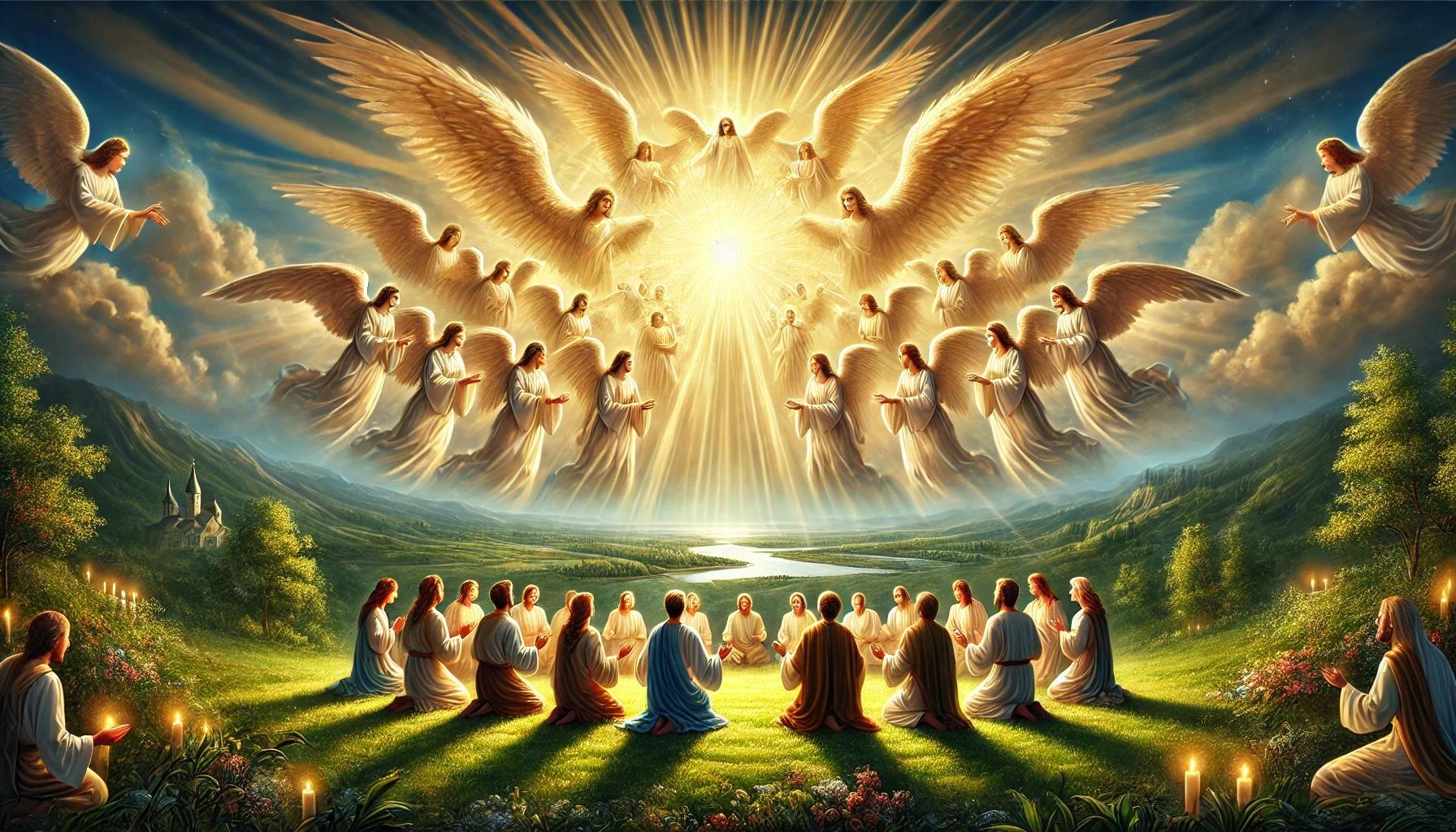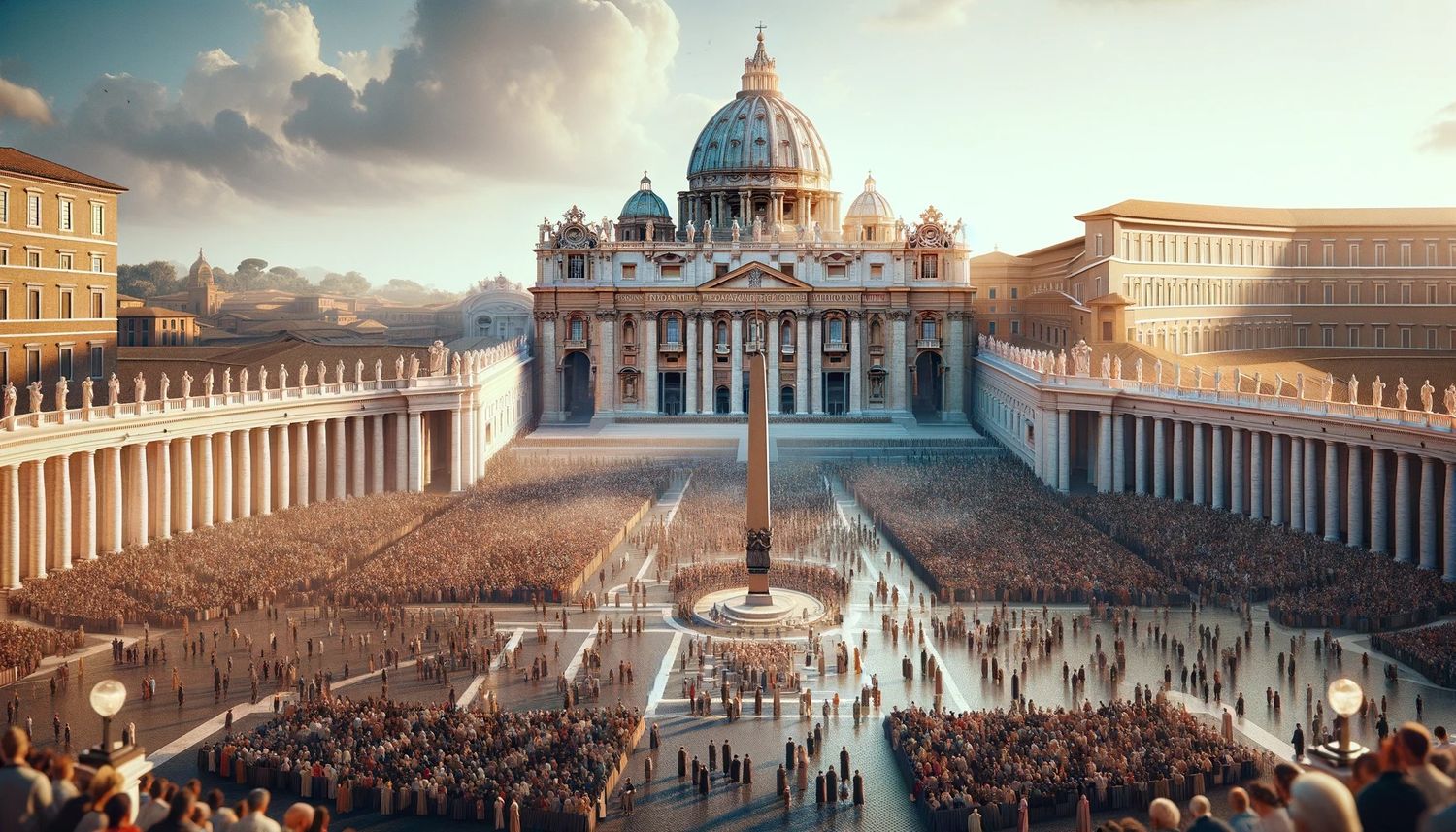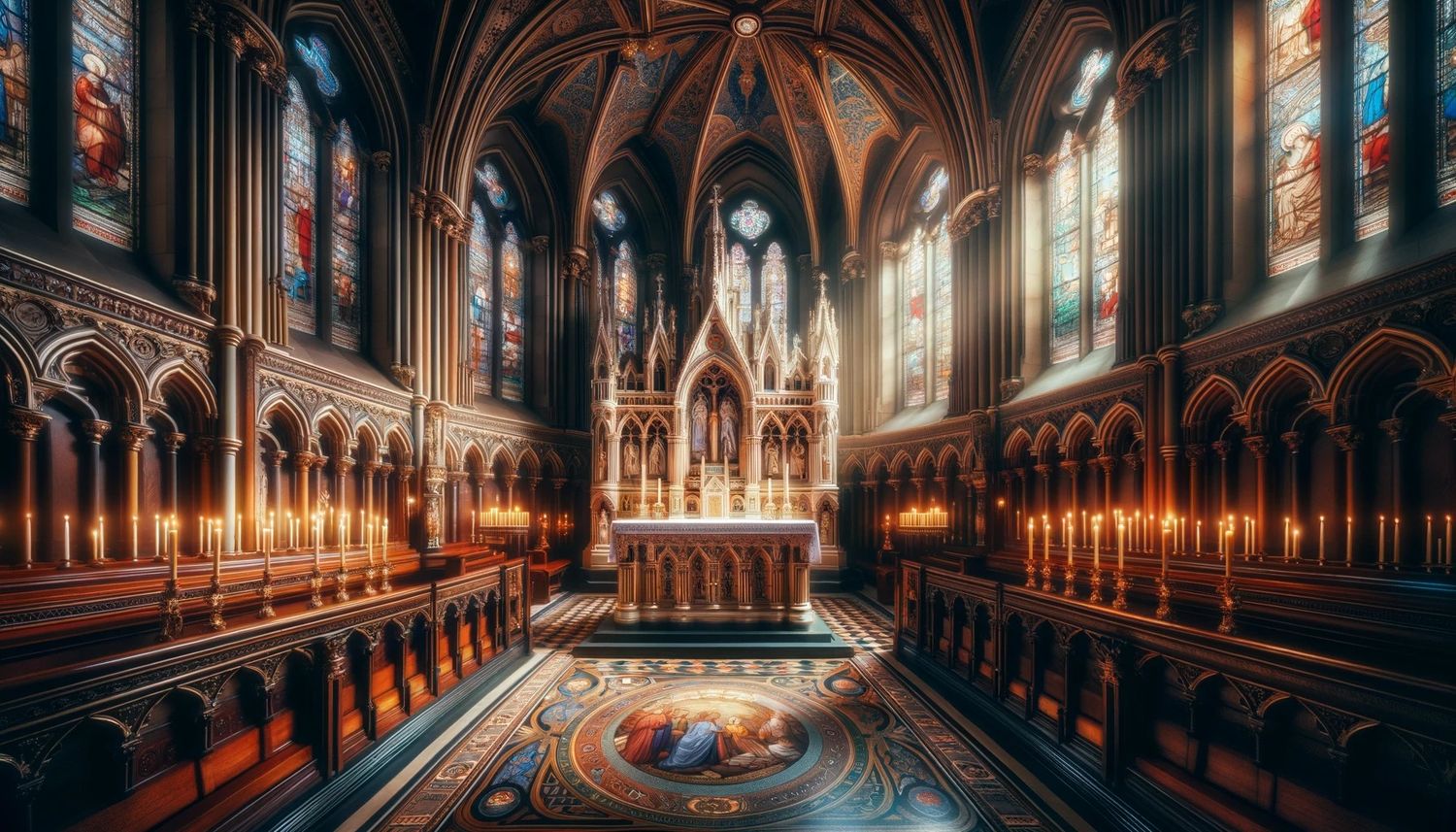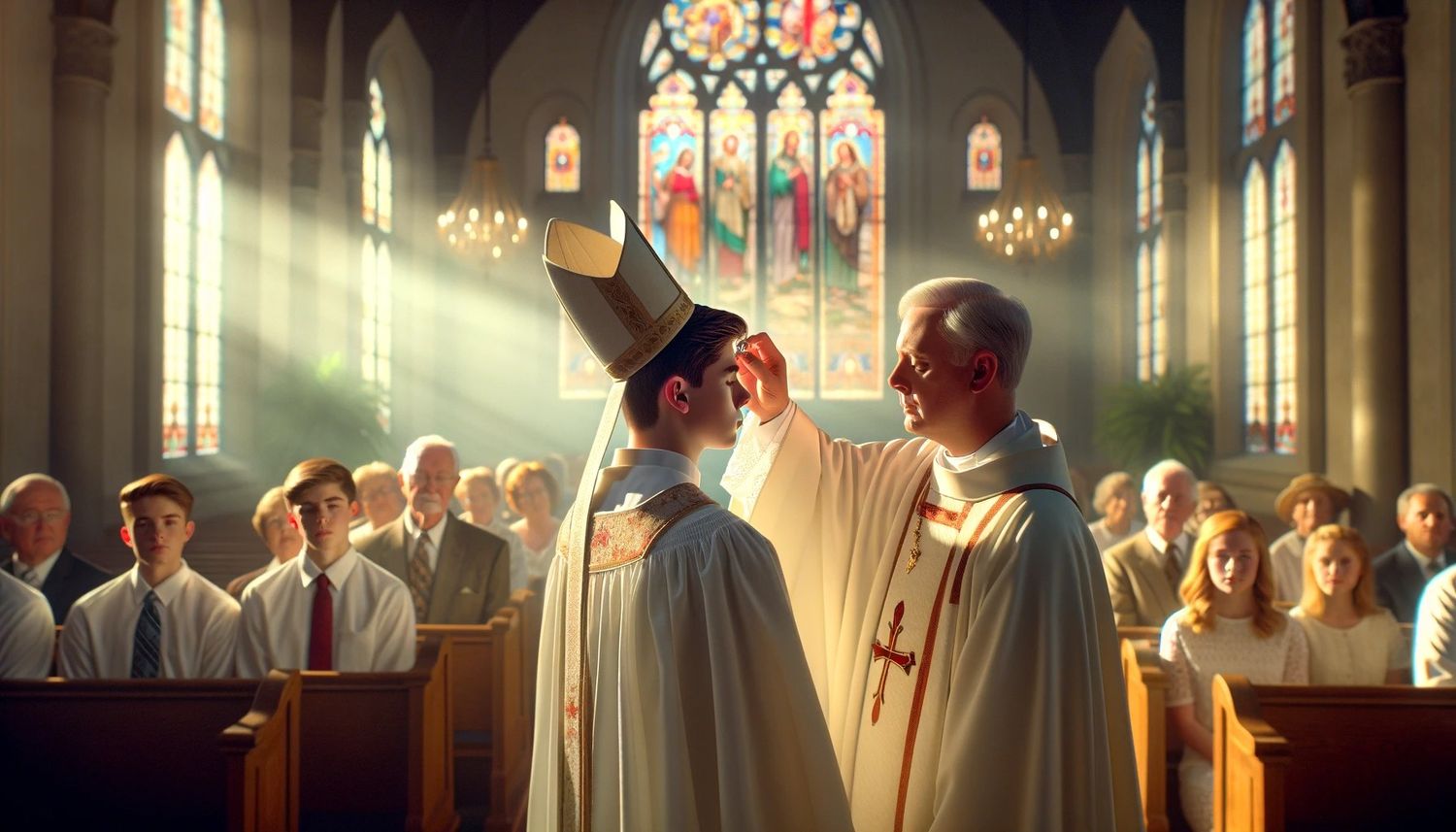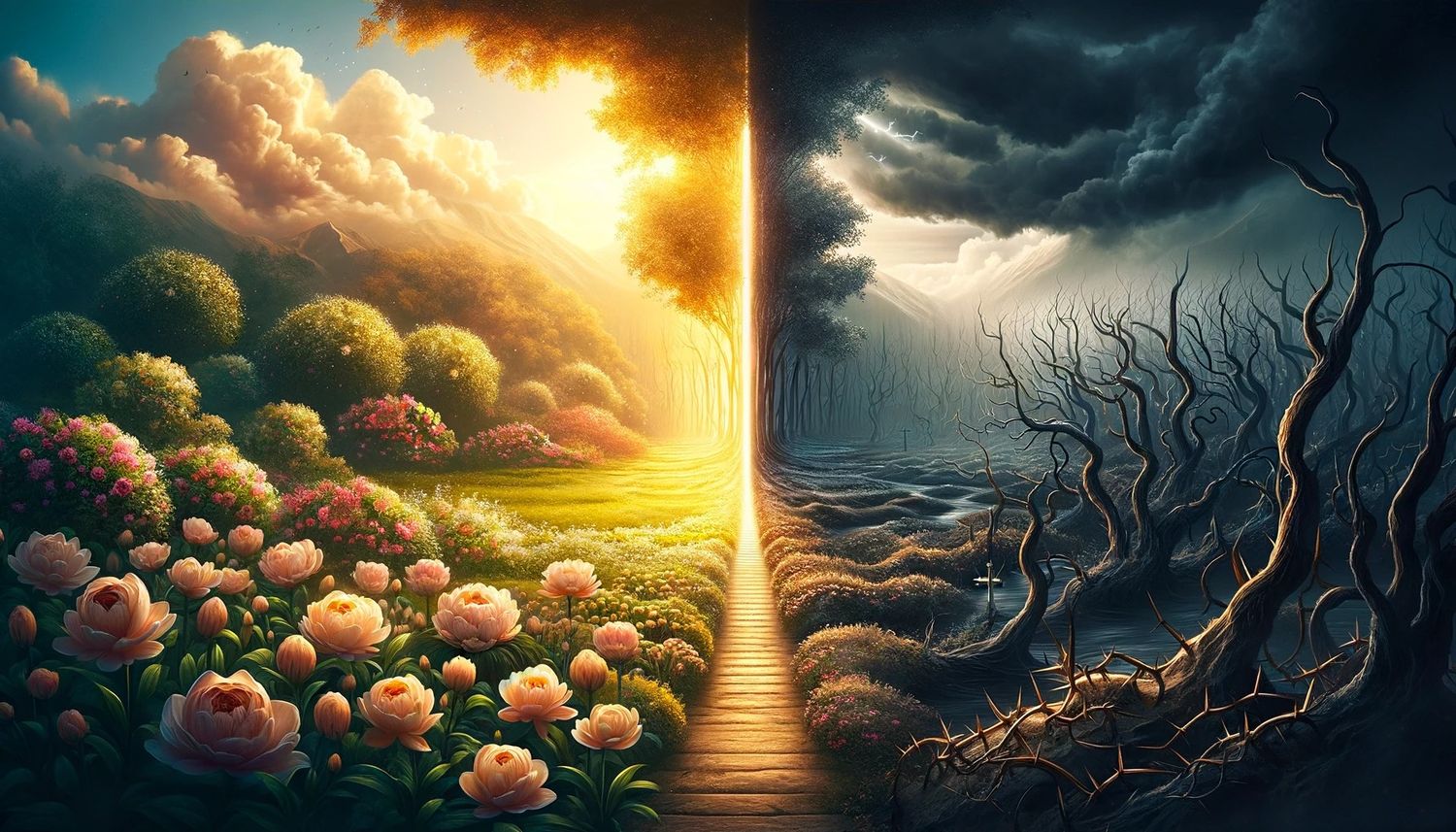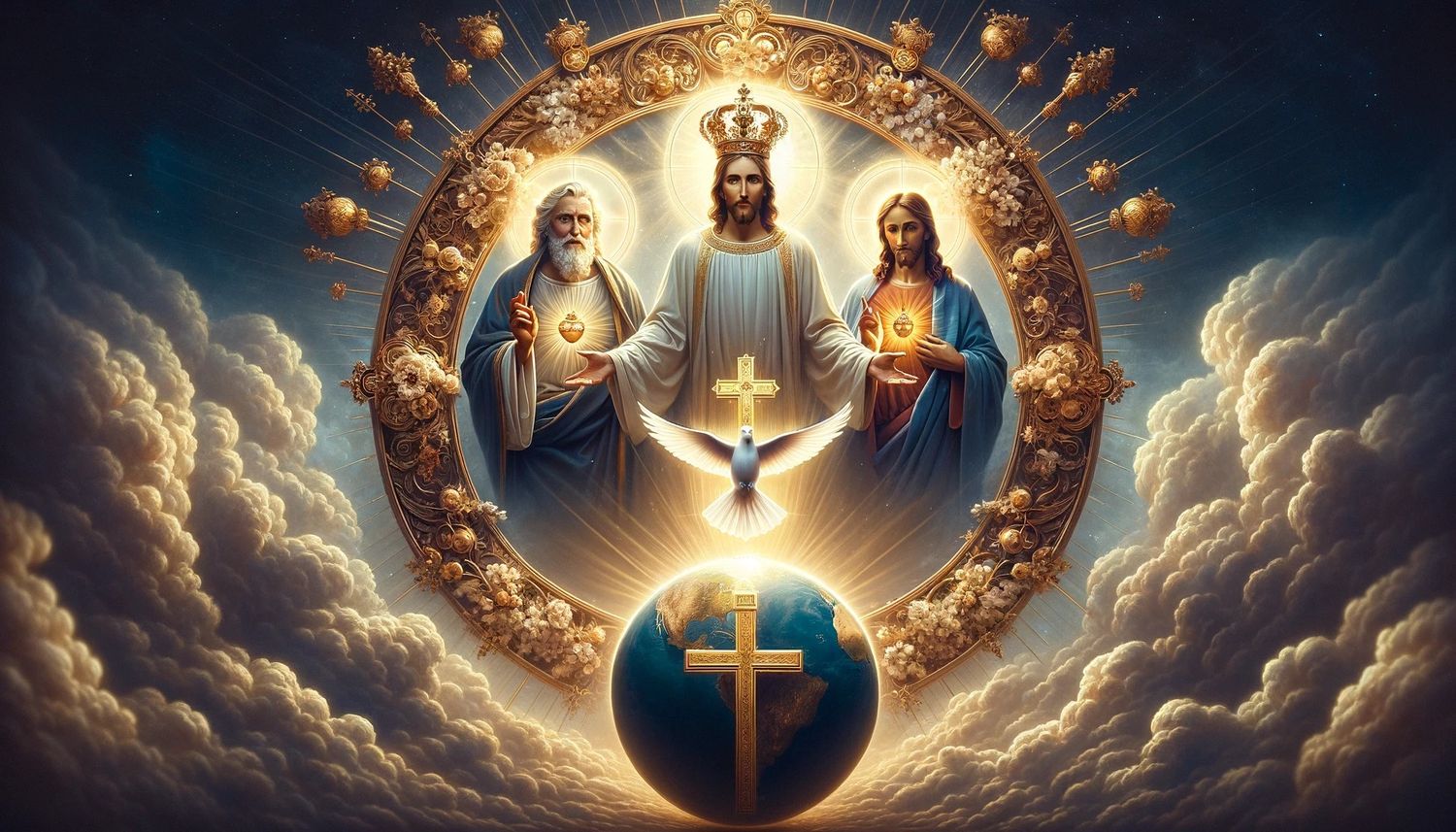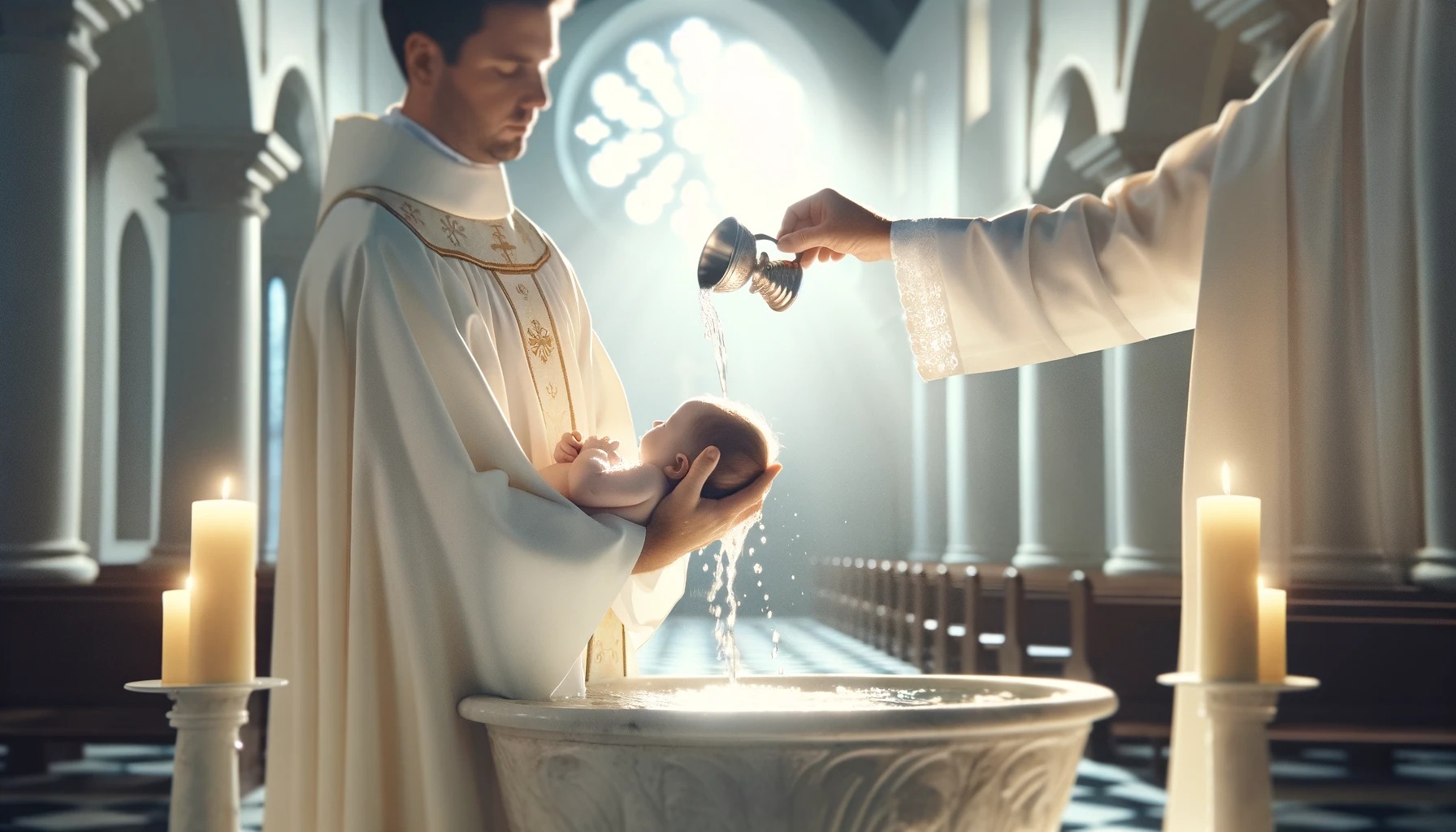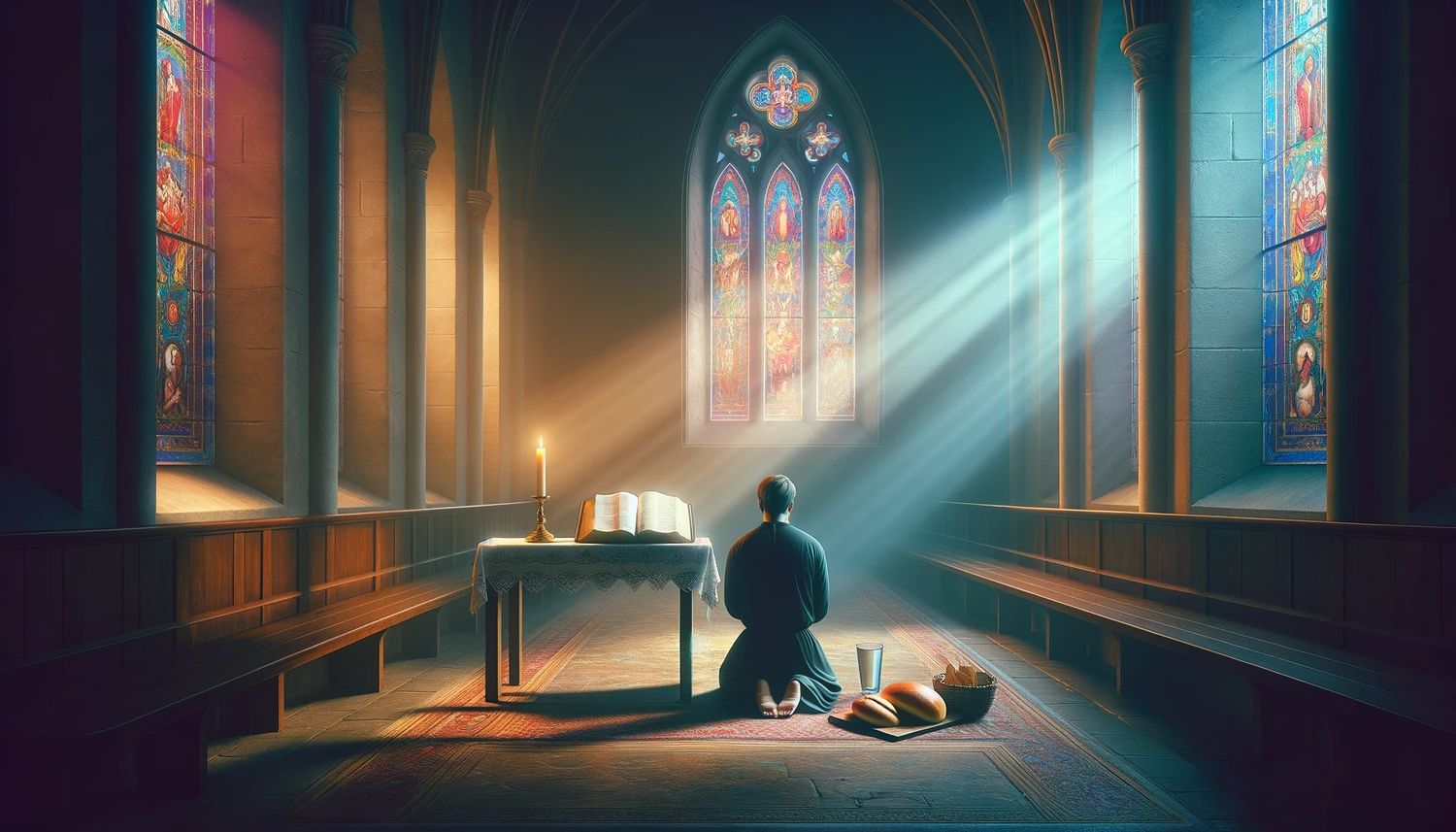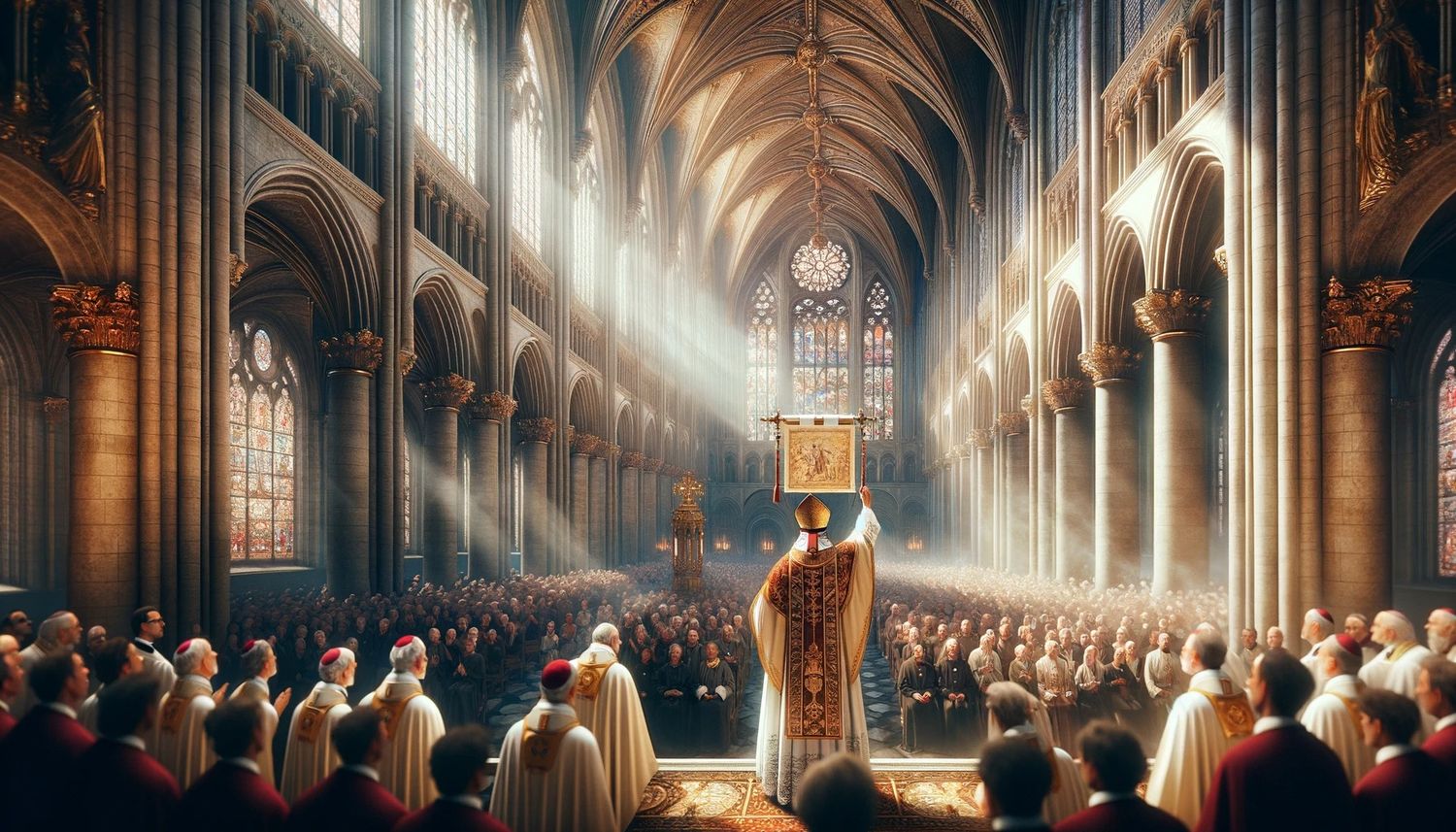Home>Theology and Spirituality>What Is Evil In Catholicism
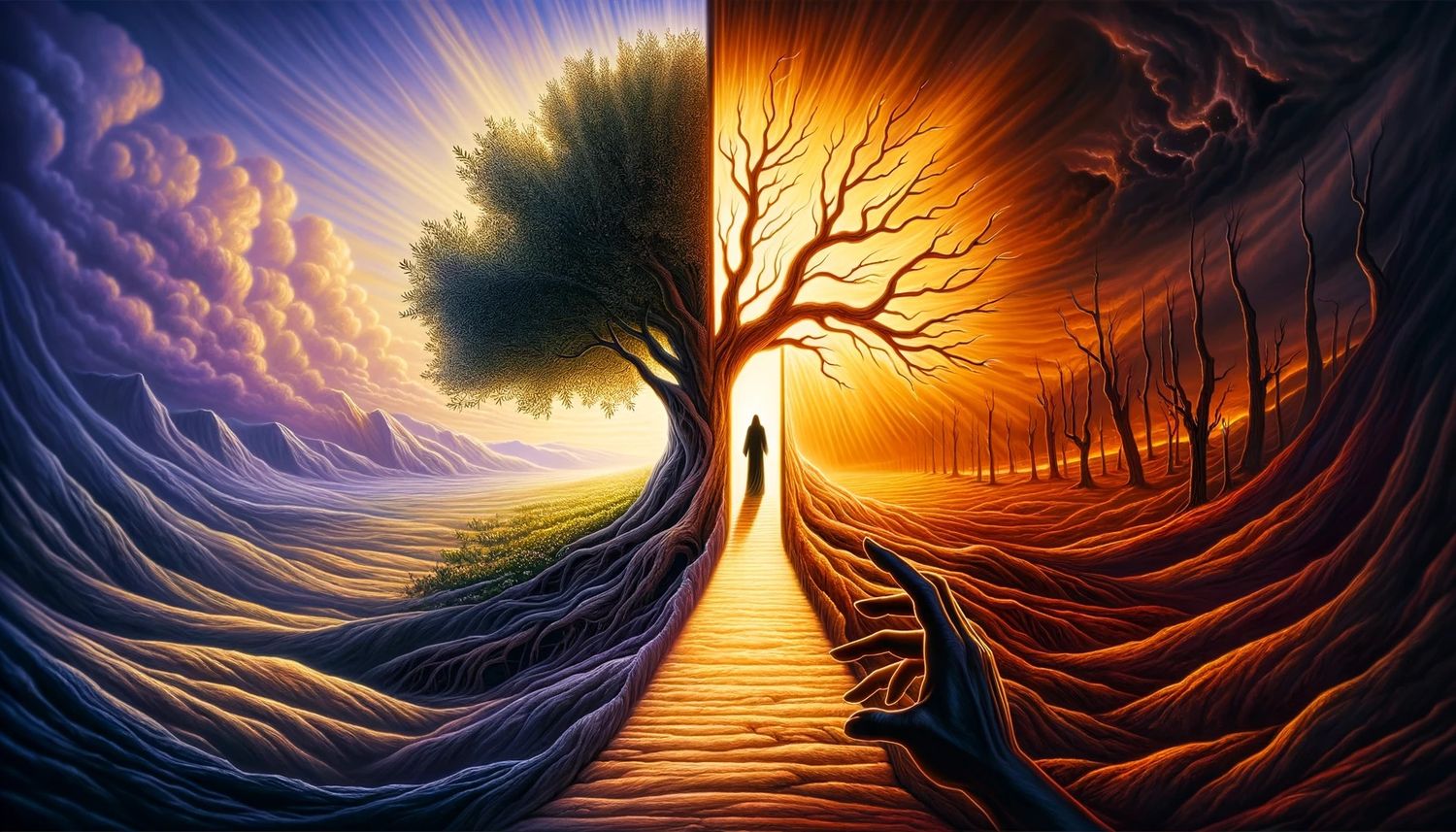

Theology and Spirituality
What Is Evil In Catholicism
Published: February 18, 2024
Jason DeRose, Managing Editor at Christian.net, uses his expertise in religion and journalism to deepen understanding of faith's societal impacts. His editorial leadership, coupled with a strong academic background, enriches the platform’s diverse content, earning him recognition in both journalism and religious circles.
Explore the concept of evil in Catholic theology and spirituality. Understand the significance and implications of evil in the Catholic faith.
(Many of the links in this article redirect to a specific reviewed product. Your purchase of these products through affiliate links helps to generate commission for Christian.net, at no extra cost. Learn more)
Table of Contents
Introduction
In the realm of Catholicism, the concept of evil holds a profound significance, shaping the beliefs, practices, and understanding of the faith. Evil, as perceived within the Catholic tradition, is a complex and multifaceted phenomenon that has been the subject of theological contemplation and spiritual inquiry for centuries. It is a fundamental aspect of the Catholic worldview, influencing the moral compass of its adherents and informing the Church's teachings on sin, redemption, and the nature of God.
The exploration of evil in Catholicism delves into the depths of human existence, grappling with the complexities of suffering, temptation, and the eternal struggle between good and evil. It is a theme that resonates throughout the rich tapestry of Catholic theology, permeating the sacred scriptures, doctrinal teachings, and the lived experiences of believers. As such, understanding the nature, origin, and role of evil within the Catholic faith is essential for comprehending the intricate interplay between sin and salvation, darkness and light, and the enduring quest for spiritual fulfillment.
Within the Catholic tradition, the concept of evil extends beyond mere moral transgressions and malevolent actions. It encompasses a profound awareness of the human condition, acknowledging the inherent frailty and susceptibility to moral failings. Moreover, it invites contemplation on the nature of sin, the complexities of human suffering, and the redemptive power of divine grace. As such, the exploration of evil in Catholicism transcends the boundaries of ethical considerations, delving into the existential and metaphysical dimensions of human existence.
This article seeks to illuminate the multifaceted nature of evil within the Catholic tradition, offering insights into its theological underpinnings, moral implications, and spiritual significance. By delving into the origin, nature, and role of evil in Catholicism, we embark on a journey of introspection and contemplation, seeking to unravel the enigmatic presence of evil in the divine plan and the human experience. Through this exploration, we endeavor to gain a deeper understanding of the complexities of good and evil, virtue and vice, and the enduring quest for spiritual enlightenment within the Catholic faith.
Read more: How Does Augustine Define Evil
The Concept of Evil in Catholicism
The concept of evil in Catholicism is deeply rooted in the theological and moral framework of the faith, permeating the beliefs, practices, and spiritual consciousness of its adherents. Within the Catholic tradition, evil is not merely perceived as the absence of good, but rather as a distinct and tangible force that opposes the divine will and disrupts the harmonious order of creation. This understanding of evil is intricately intertwined with the broader theological narrative of sin, redemption, and the cosmic battle between the forces of light and darkness.
Central to the Catholic concept of evil is the recognition of its pervasive influence on the human condition. Evil is not relegated to isolated acts of wrongdoing but is acknowledged as a pervasive reality that manifests in various forms, including moral transgressions, spiritual malaise, and the enduring presence of suffering and injustice in the world. This holistic understanding of evil underscores its profound impact on both individual lives and the collective human experience, prompting believers to confront its complexities with moral discernment and spiritual fortitude.
Moreover, within the Catholic tradition, evil is intricately linked to the concept of sin, representing a deviation from the divine moral order and a rupture in the relationship between humanity and God. The Catechism of the Catholic Church delineates sin as an offense against God, a rejection of His love, and a failure to embrace the inherent goodness and dignity of human nature. This perspective underscores the gravity of evil within the Catholic worldview, emphasizing its corrosive effects on the moral and spiritual integrity of individuals and communities.
Furthermore, the Catholic understanding of evil encompasses the recognition of diabolical forces that seek to lead humanity astray and undermine the pursuit of virtue and holiness. The figure of Satan, as a malevolent and deceptive entity, embodies the embodiment of evil in Catholic theology, symbolizing the relentless adversary who seeks to tempt, deceive, and corrupt human souls. This theological portrayal of evil as a personal and malevolent force underscores the enduring struggle between good and evil, virtue and vice, and the imperative for believers to remain vigilant against the snares of temptation and moral compromise.
In essence, the concept of evil in Catholicism transcends mere ethical considerations, inviting believers to confront the profound complexities of human frailty, moral failings, and the enduring struggle to align with the divine will. It underscores the moral imperative to resist evil, cultivate virtue, and seek reconciliation with God and one another. This multifaceted understanding of evil within the Catholic tradition serves as a poignant reminder of the enduring quest for spiritual enlightenment, moral rectitude, and the transformative power of divine grace in the face of adversity and moral tribulation.
The Origin of Evil in Catholicism
In Catholic theology, the origin of evil is a subject of profound contemplation and theological inquiry, seeking to unravel the enigmatic presence of moral and metaphysical discord within the divine order. The traditional understanding of the origin of evil in Catholicism is intrinsically linked to the narrative of the Fall, as depicted in the Book of Genesis. According to this foundational narrative, the origin of evil is intricately intertwined with the disobedience of Adam and Eve, the first human beings, who succumbed to the temptation of the serpent and transgressed the divine commandment.
The narrative of the Fall elucidates the rupture in the harmonious relationship between humanity and God, resulting from the primal act of disobedience and the subsequent introduction of sin and moral frailty into the human experience. This theological portrayal of the origin of evil underscores the profound consequences of human free will and moral agency, highlighting the inherent susceptibility to temptation and the potential for moral transgression.
Furthermore, within the Catholic tradition, the origin of evil is also associated with the figure of Lucifer, once an exalted angel who rebelled against God and was cast out of heaven. This theological narrative emphasizes the presence of malevolent and rebellious forces within the cosmic order, symbolizing the origins of spiritual discord and moral corruption. The fall of Lucifer and his cohort of rebellious angels, commonly referred to as demons, represents a pivotal aspect of the Catholic understanding of the origin of evil, portraying the cosmic struggle between the forces of light and darkness.
Moreover, the Catholic perspective on the origin of evil acknowledges the enduring influence of human sinfulness and moral failings, perpetuating the cycle of moral discord and spiritual estrangement from God. This multifaceted understanding of the origin of evil within the Catholic tradition underscores the complex interplay between human free will, diabolical temptation, and the enduring quest for moral rectitude and spiritual reconciliation.
In essence, the origin of evil in Catholicism is intricately woven into the theological narrative of human disobedience, diabolical rebellion, and the enduring struggle between virtue and vice. It serves as a poignant reminder of the complexities of the human condition, the inherent susceptibility to moral frailty, and the redemptive promise of divine grace in the face of moral tribulation and spiritual discord.
The Nature of Evil in Catholicism
The nature of evil in Catholicism is deeply rooted in the theological and moral fabric of the faith, permeating the beliefs, practices, and spiritual consciousness of its adherents. Within the Catholic tradition, evil is not merely perceived as the absence of good, but rather as a distinct and tangible force that opposes the divine will and disrupts the harmonious order of creation. This understanding of evil is intricately intertwined with the broader theological narrative of sin, redemption, and the cosmic battle between the forces of light and darkness.
Central to the Catholic concept of evil is the recognition of its pervasive influence on the human condition. Evil is not relegated to isolated acts of wrongdoing but is acknowledged as a pervasive reality that manifests in various forms, including moral transgressions, spiritual malaise, and the enduring presence of suffering and injustice in the world. This holistic understanding of evil underscores its profound impact on both individual lives and the collective human experience, prompting believers to confront its complexities with moral discernment and spiritual fortitude.
Moreover, within the Catholic tradition, evil is intricately linked to the concept of sin, representing a deviation from the divine moral order and a rupture in the relationship between humanity and God. The Catechism of the Catholic Church delineates sin as an offense against God, a rejection of His love, and a failure to embrace the inherent goodness and dignity of human nature. This perspective underscores the gravity of evil within the Catholic worldview, emphasizing its corrosive effects on the moral and spiritual integrity of individuals and communities.
Furthermore, the Catholic understanding of evil encompasses the recognition of diabolical forces that seek to lead humanity astray and undermine the pursuit of virtue and holiness. The figure of Satan, as a malevolent and deceptive entity, embodies the embodiment of evil in Catholic theology, symbolizing the relentless adversary who seeks to tempt, deceive, and corrupt human souls. This theological portrayal of evil as a personal and malevolent force underscores the enduring struggle between good and evil, virtue and vice, and the imperative for believers to remain vigilant against the snares of temptation and moral compromise.
In essence, the concept of evil in Catholicism transcends mere ethical considerations, inviting believers to confront the profound complexities of human frailty, moral failings, and the enduring struggle to align with the divine will. It underscores the moral imperative to resist evil, cultivate virtue, and seek reconciliation with God and one another. This multifaceted understanding of evil within the Catholic tradition serves as a poignant reminder of the enduring quest for spiritual enlightenment, moral rectitude, and the transformative power of divine grace in the face of adversity and moral tribulation.
The Role of Evil in Catholicism
The role of evil in Catholicism extends beyond its mere existence as a theological concept; it permeates the moral landscape of the faith, shaping the understanding of sin, redemption, and the human experience. Within the Catholic tradition, the role of evil is multifaceted, serving as a poignant reminder of the enduring struggle between good and evil, virtue and vice, and the imperative for believers to navigate the complexities of moral discernment and spiritual fortitude.
At the heart of the role of evil in Catholicism lies the recognition of its pervasive influence on human existence. Evil is not relegated to abstract philosophical notions but is acknowledged as a palpable force that permeates the moral and spiritual fabric of the world. It serves as a stark reminder of the inherent susceptibility to moral frailty and the enduring quest for moral rectitude and spiritual reconciliation.
Moreover, the role of evil in Catholicism underscores the moral imperative to resist temptation and cultivate virtue. It serves as a catalyst for moral discernment, prompting believers to confront the complexities of human frailty and the pervasive allure of sin. The recognition of evil's role in the human experience compels individuals to remain vigilant against moral compromise and to seek reconciliation with God and one another.
Furthermore, the role of evil in Catholicism is intricately linked to the redemptive narrative of the faith. It serves as a backdrop against which the transformative power of divine grace and the promise of spiritual renewal are illuminated. The acknowledgment of evil's role in the human experience underscores the profound significance of redemption and the enduring quest for spiritual enlightenment in the face of moral tribulation.
In essence, the role of evil in Catholicism serves as a poignant reminder of the enduring struggle between sin and salvation, darkness and light. It invites believers to confront the complexities of the human condition with moral discernment and spiritual fortitude, emphasizing the transformative power of divine grace in the face of moral adversity. As such, the role of evil in Catholicism is not merely a theological abstraction but a profound and enduring reality that shapes the moral consciousness and spiritual journey of believers within the faith.
Read more: 20 Prayers To Protect Home From Evil
The Understanding of Evil in Catholicism
The understanding of evil in Catholicism is deeply rooted in the theological and moral framework of the faith, permeating the beliefs, practices, and spiritual consciousness of its adherents. Within the Catholic tradition, evil is not merely perceived as the absence of good, but rather as a distinct and tangible force that opposes the divine will and disrupts the harmonious order of creation. This understanding of evil is intricately intertwined with the broader theological narrative of sin, redemption, and the cosmic battle between the forces of light and darkness.
Central to the Catholic concept of evil is the recognition of its pervasive influence on the human condition. Evil is not relegated to isolated acts of wrongdoing but is acknowledged as a pervasive reality that manifests in various forms, including moral transgressions, spiritual malaise, and the enduring presence of suffering and injustice in the world. This holistic understanding of evil underscores its profound impact on both individual lives and the collective human experience, prompting believers to confront its complexities with moral discernment and spiritual fortitude.
Moreover, within the Catholic tradition, evil is intricately linked to the concept of sin, representing a deviation from the divine moral order and a rupture in the relationship between humanity and God. The Catechism of the Catholic Church delineates sin as an offense against God, a rejection of His love, and a failure to embrace the inherent goodness and dignity of human nature. This perspective underscores the gravity of evil within the Catholic worldview, emphasizing its corrosive effects on the moral and spiritual integrity of individuals and communities.
Furthermore, the Catholic understanding of evil encompasses the recognition of diabolical forces that seek to lead humanity astray and undermine the pursuit of virtue and holiness. The figure of Satan, as a malevolent and deceptive entity, embodies the embodiment of evil in Catholic theology, symbolizing the relentless adversary who seeks to tempt, deceive, and corrupt human souls. This theological portrayal of evil as a personal and malevolent force underscores the enduring struggle between good and evil, virtue and vice, and the imperative for believers to remain vigilant against the snares of temptation and moral compromise.
In essence, the concept of evil in Catholicism transcends mere ethical considerations, inviting believers to confront the profound complexities of human frailty, moral failings, and the enduring struggle to align with the divine will. It underscores the moral imperative to resist evil, cultivate virtue, and seek reconciliation with God and one another. This multifaceted understanding of evil within the Catholic tradition serves as a poignant reminder of the enduring quest for spiritual enlightenment, moral rectitude, and the transformative power of divine grace in the face of adversity and moral tribulation.
Conclusion
In conclusion, the exploration of evil in Catholicism unveils a profound and multifaceted understanding of this theological concept within the rich tapestry of the faith. The concept of evil transcends mere ethical considerations, delving into the existential and metaphysical dimensions of human existence. It is deeply intertwined with the broader theological narrative of sin, redemption, and the cosmic battle between the forces of light and darkness.
Within the Catholic tradition, the concept of evil serves as a poignant reminder of the enduring struggle between good and evil, virtue and vice, and the imperative for believers to navigate the complexities of moral discernment and spiritual fortitude. It underscores the moral imperative to resist evil, cultivate virtue, and seek reconciliation with God and one another. Moreover, the acknowledgment of evil's role in the human experience compels individuals to remain vigilant against moral compromise and to confront the pervasive allure of sin.
The understanding of evil in Catholicism encompasses the recognition of diabolical forces that seek to lead humanity astray and undermine the pursuit of virtue and holiness. The figure of Satan, as a malevolent and deceptive entity, embodies the embodiment of evil in Catholic theology, symbolizing the relentless adversary who seeks to tempt, deceive, and corrupt human souls. This theological portrayal of evil as a personal and malevolent force underscores the enduring struggle between good and evil, virtue and vice, and the imperative for believers to remain steadfast in their faith.
Ultimately, the exploration of evil in Catholicism invites believers to confront the profound complexities of human frailty, moral failings, and the enduring struggle to align with the divine will. It underscores the transformative power of divine grace in the face of moral adversity and serves as a poignant reminder of the enduring quest for spiritual enlightenment and moral rectitude within the Catholic faith. As such, the concept of evil in Catholicism is not merely a theological abstraction but a profound and enduring reality that shapes the moral consciousness and spiritual journey of believers within the faith.

